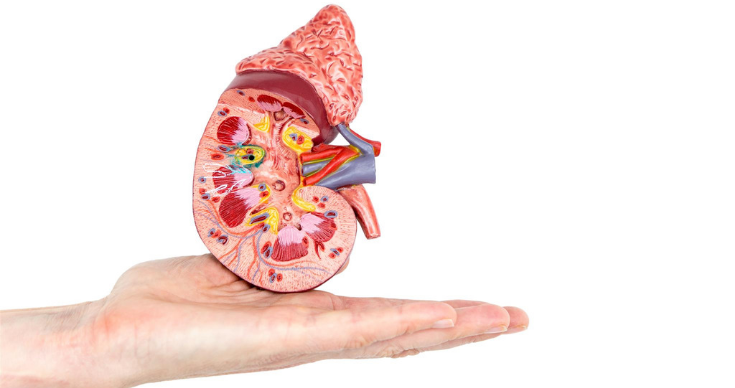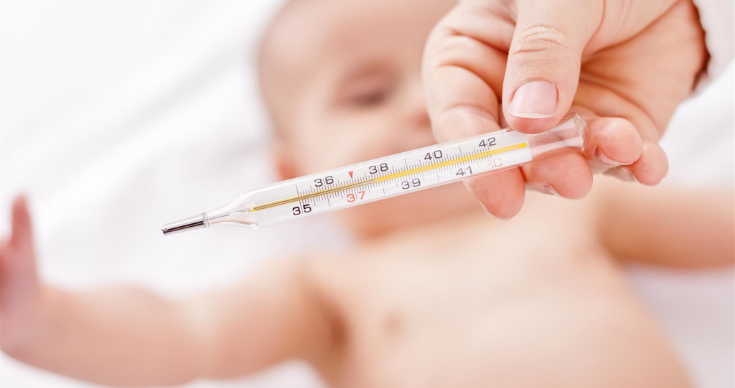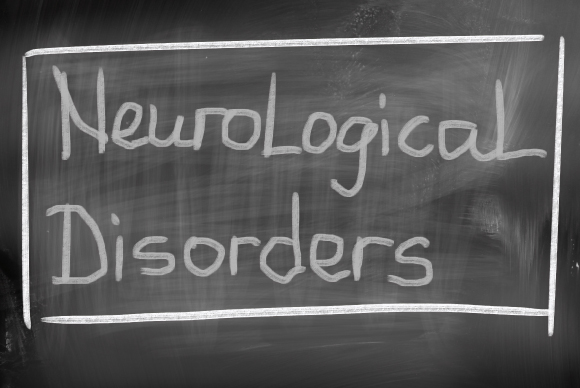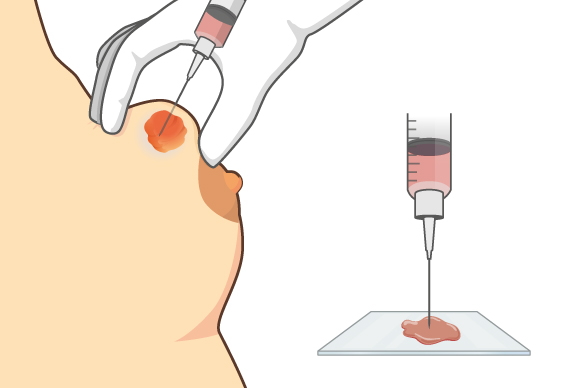Risk Factors For Premature Death That You Should Be Aware Of
Lifespan is defined as the time period which a healthy individual should live under normal circumstance. One can increase their life expectancy by leading a healthy lifestyle and availing the best treatment in case of any illness. Life expectancy, however, can also get disrupted due to several health and environmental factors. While one can do very little about any accidents, taking some precautions can help people avoid certain life-threatening diseases.
Today we are sharing some of the most common cause of premature death, that can be controlled if proper measures are taken on time.
1. Heart Ailments
The heart is a crucial organ that pumps blood throughout our body and performs many other functions. Deadly heart conditions like a cardiac arrest or heart attack are some of the most leading causes of death across the globe. Moreover, chronic heart condition can also increase the probability of premature death, due to several reasons. As per cardiologists of the best heart hospitals, most heart ailments are closely related to several risk factors such as obesity, smoking, high blood pressure, etc. Thus, controlling these facts can help prevent or at least control the possibility of deadly heart ailments.
2. Stroke
Stroke is yet another leading cause of death all around the world. Even though stroke is a deadly condition, identifying its symptoms and rushing to the nearest medical emergency unit on time can save at least 30 % of the patients effectively. However, proper measures such as managing one’s blood pressure and limiting the intake of salt can mitigate the possibility of stroke significantly. Moreover, people with cholesterol and other risk factors for stroke and brain diseases should seek routine screening. This will help people managing such a crisis, in case they trigger.
3. Lung And Respiratory Diseases
The number of people consuming some or the other form of tobacco is significantly high. Thus, it comes as no surprise that a rather significant number of premature death happens due to some lung or respiratory condition. Lung cancer is a leading cause of death all around the world. In India, the number of death due to fatal lung condition is mostly either due to consuming tobacco products or working under the exposure to harmful gases. Taking adequate measures against it can help immensely to avoid any severe condition.
4. Stress
Though it might sound like an overrated condition in this list, stress actually harms the body in more than one ways. Most of the peoples deal with stress and its consequences, these days. Especially persistent stress that affects daily activity like sleep and diet can do very severe harm. In fact, it is not uncommon to find that people with stress often lose sleep, along with other complications like anxiety, nervous breakdown, and many others.
Timely measures and commitment towards a healthier life ahead are very crucial to deal with these and other reasons for premature death. ILS Hospitals offers quality treatment for a wide range of illnesses that affects one’s life expectancy, directly or indirectly.
A Brief Introduction To Advanced Renal Transplant
Our body has been designed to perform every crucial function quite effectively. Yet, it is quite normal to rely on medical treatment when our body becomes weak due to some disease or accidental injury. However, only medication cannot always fix every condition on its own. Kidney failure is one such condition that many times require extensive medical attention namely the renal transplant. Let’s understand more about renal failure and advanced renal transplant, as explained by our nephrologists.
Kidneys are a pair of a bean-shaped organ that filters the blood and flushes out the toxins in the form of urine. The kidneys are comprised of tiny filtration units which work so efficiently that even one healthy kidney can perform the overall function. Thus, it becomes quite tricky to detect a renal failure in its early stages. Nephrologists term Renal failure as the condition in which the kidneys lose more than 90% of their ability to function anymore. Renal failure can either happen due to chronic kidney disease or acute kidney diseases. Additionally, factors like chronic high blood pressure, diabetes can also uplift the chances of kidney diseases significantly.
Either way, it requires either regular dialysis or a renal transplant to make long term survival. Kidney transplant is a more preferable solution in comparison to a lifetime of dialysis ahead. Renal transplant is a surgical procedure to transfer a healthy kidney from a donor to a patient whose kidneys no longer performs. This functioning kidney can either be collected from a dead person (cadaveric donor) or from a living healthy donor. Usually, one healthy kidney is adequate to replace 2 failed kidneys. But it is not as simple as it may sound.
Renal transplant is an advanced treatment procedure that requires many prerequisites for it to become successful. Just like blood transfusion, there should be adequate compatibility between the donor and the recipient for renal transplant to work. Moreover, getting a donor often is time-consuming (between a few months to a few years) in case a compatible donor cannot be found on time. In such a scenario, the recipient will have to register their name on a kidney transplanting list, which determines several factors before one can get their scope of renal transplant.
This modern medical marvel has its downside as well. Mild infection, blood clot, and bleeding might arise after renal transplant, but, these can be treated well with mild medication. The main concern related to a renal transplant is organ rejection, in which the body of the recipient rejects the organ. But in some cases, this possibility can be minimized with the help of taking immunosuppressants. So, it is very crucial to carry out this surgery in an advanced hospital under expert nephrologists.
Renal transplant is an advanced medical procedure to ensure the patient with renal failure can lead a healthy life ahead. Through some risks are associated with it, the increasing numbers of success stories are inspiring people to consider this treatment for themselves or their loved ones. For more information regarding kidney diseases, renal failure, and renal transplant, consult with the highly experienced nephrologists at ILS Hospitals.
6 Most Common Health Issues Of Children By Expert Pediatricians
Falling sick is difficult and frustrating for every individual. However, when your kids fall sick, it is even more challenging. You might be able to ensure that your kid stays healthy by maintaining a healthy diet and lifestyle for your kids along with a regular visit to a general physician. However, in the case of several conditions, you need a proper consultation with an expert pediatrician. Today, we bring you some most common heath issues that are prevalent among young children, as explained by expert pediatricians.
1. Common Cold
The common cold is quite common among young children. But thankfully, most common colds can be effectively cured with adequate fluid intake, rest and home remedies, though sometimes it might require mild, over-the-counter medicine. But in case it is causing too many absenteeism or looks like something severe, it is wise to get it checked from a doctor soon.
2. Allergies
Having allergies is very common among young children. Let it be from any particular food or dust mite, smoke or pollen, it is important to get it evaluated. Though many children can successfully get rid of certain allergies as they grow up and their immune system develops, it is crucial to make them aware of their allergies and remedies, in case it is ever required.
3. Conjunctivitis
This infection affects the eyelid and also the eyeball sometimes. This can cause either due to a pathogen like a virus and bacteria or some allergies. This leads to red, puffy eyes that discharge liquid and often happens to be contagious in nature. It is crucial to take proper measure to ensure it does not affect other children either.
4. Warts
It is yet another common issue among young children. Warts are small, lumpy appearances on the skin that can spread to other areas as well. Though it is painless, it is crucial that the children do not prick or scratch them. It usually can be treated easily with mild medication, but in case they have a red and painful appearance or happens on the feet, the face or the genitals, it requires immediate medical attention.
5. Worms
Having worms is very common among young children. It projects annoying symptoms like itchy bottom. It can be effectively treated with anti-parasitic tablets, and it is crucial to have these medicines for everyone in the family simultaneously. It is also important to use soap and wash the bed linings and clothes thoroughly.
6. Gastroenteritis
Having diarrhea, vomiting, fever, and cramps are quite normal in children, along with loss of appetite and nausea. It is a pathogenic infection that can be treated easily by over the counter drugs, plenty of rest and fluid intake. But it spreads very quickly, so it is important to take measure to contain and eliminate it completely.
Even though growing up with mild illnesses is a part of childhood and there is no way to eliminate every condition, no matter how careful you are, it is important to be able to treat them on time. The expert pediatricians of the ILS Hospitals offer treatment for a wide range of illnesses among children.
Suffering From Persistent Headache? Learn What Might Be Causing The Same
Human beings are surrounded by diseases in every stage of life. Having headaches is one of the most common conditions that affect almost every individual from time to time. Though you might be able to relieve stress headache with a good sleep or herbal tea, dealing with persistent headache is quite challenging. Persistent headaches can be a sign that the body is going through persistent fatigue. However, it may also be a sign of a severe condition like a brain tumor that can be addressed by proper treatment. Today, we will discuss some possible reasons for persistent headaches.
1. Infection In The Brain
There are few parasitic that can cause brain infections such as Meningitis that affects the brain’s function and can project many symptoms. Headaches are simply one of them.
2. Brain Tumour
A brain tumor is a serious condition that requires immediate medical attention from the best hospital. Frequent episodes of headaches accompanied by loss of memory should be addressed immediately.
3. Nerve Condition Around The Brain
Inflammation of blood vessels around the brain is yet another reason for recurring episodes of headaches. Some of them might be accompanied by a sensation of formication (sensation of small insects crawling on the head, due to nervous movements).
4. Intense Cranial Pressure
Using any headband or hairband or another accessory that exerts intense pressure for a persistent period of time can also lead to headaches during or even after using them.
5. Brain Injury
Any recent or previous injury (or trauma) can cause a headache. This should be diagnosed further to rule out the possibility of having any underlying damage from the past.
6. Everyday Stress
People for whom stress is a part and parcel for everyday life, often come across persistent stress-induced headaches and other medical problems as well.
7. Lack Of Adequate Rest
Not getting adequate rest can have several adverse effects on one’s health. This often leads to headaches as well.
8. Alcohol Hangover
Overconsumption of alcohol often leads towards hangover, that comes with mild to severe headache. People who drink routinely feels these headaches routinely as well.
9. Change Of Vision Power
As per many eye specialists, any change in eye power can also cause headaches.
10. Brain Freeze
Consuming chilled liquids too quickly can lead to a brief, headache. This s practically a signal from the brain indicating to have such beverages quite slowly.
11. Occupational Hazards
Exposure to a certain harmful environment such as CO poisoning can lead to continuous episodes of headache.
12. Dehydration
Severe dehydration affects the body in more than one way. Headaches are very common among people who are suffering from dehydration.
13. Certain Habits
Some persistent movements related to maxillofacial muscle such as the habit of teeth grinding can also lead to a headache.
A certain change in lifestyle and taking precaution can certainly help relieve these headaches, such as-
- Avoiding medication overuse.
- Eating healthy, at the right time
- Getting enough sleep.
- Cutting down caffeine and alcohol
- Staying active
- Managing stress
Persistent headaches should be always taken seriously. In case you too suffer from the same, get it evaluated by a doctor at the earliest convenience.
Knee Problems That Require Replacement Surgeries
Long walks during some trip or an exceptionally busy day are certain to cause some discomfort in the skeletal system. Its maximum impact can be seen on the lower extremities, namely the knee and heel joints. This kind of pain and discomfort becomes inevitable during old age and in case of accident or illness that has affected the Musco-skeletal system. In fact, the number of patients seeking ortho and joint replacement surgeries these days are alarmingly high. However, there are several individuals who are dealing with such difficulties every day without being aware of the fact that most of the times it can be resolved using advance ortho replacement surgery.
Today, we are listing some knee problem that might require ortho replacement surgery, which can help improve such discomforts.
1. Knee Osteoarthritis
This illness is characterized by decaying of bone density alarmingly. As a result, it starts to make the bone structure much fragile and leads to pain and discomfort. It affects everyday activities like climbing stairs, bending, walking and sometimes even sitting and getting up. For such patients, knee replacement is a good treatment option, but along with the surgery, the patients need to modify their diet and lifestyle a little as well. This aims to strengthen the bones and mitigate the risks of bone fracture in the future.
2. Knee Effusion
Synovial fluid is a natural, thick lubricant present in the cavities of the joint. It eases movement in that region, nourishes the cartilage along with protecting and supporting the knee joints. When this fluid fails to perform its function, it leads to knee inflammation, pain, and other discomforts. It might require extensive treatment to ensure complete care for the same including surgery.
3. Accidental Trauma To Knee
Any accident, let it be a small fracture or major clash, can affect the skeletal system. It is crucial to seek treatment if any persistent discomfort is noted. In case the accidental trauma is causing some major issue, particularly in the knee joint, the doctor might advise knee replacement surely, but only after confirming the same using imaging diagnostic screenings. It is crucial to seek treatment on time, as untreated discomfort can cause some long term damage as well.
4. Bowing In Or Out
Any Musco-skeletal disease such as bowing in or out might require knee replacement surgery as well. Whether it is a birth defect or has occurred over time, it is crucial to stop suffering and evaluate your treatment options to correct it permanently.
5. Knee Inflammation
Knee inflammation is characterized by stiffness of the knee joint due to inflammation in the region. It causes pain, immobility, and discomfort. It can be resolved with mild mediation, if the inflammation is on the skin, typically over the joint. But it is due to something that is happening internally, often the knee replacement surgery might be considered.
Knee joint pain can simply on set over the course of older age. Knee replacement surgery can be advised when the knee pain seems to be an issue due to many other causes as well. This is particularly true if the knee pain does not resolve with medication and starts interfering with everyday work and activities. It is crucial to try to find out the exact cause and treatment of the knee pain.
In case, you are dealing with any of this, it’s time to consider getting an ortho and joint replacement surgery. Remember, the sooner you get it treated, the better the result it has.
GERD – A Brief Introduction
You surely must have felt acidity burps from time to time. It happens due to the backflow of the stomach acid into the digestive tract. It is not uncommon for people to experience, once in a while as it is quite natural and needs no treatment to resolve it. But when it becomes chronic, it’s medically termed as GERD. It an acronym for gastroesophageal reflux disease. It is crucial to seek treatment for the same form an expert gastroenterologist on time to mitigate the risk of having any complications arising from it. Let’s have a look at it, in brief.
What is GERD?
It is a digestive disease that affects the muscle of the lower portion of the esophagus that leads towards the stomach. Under normal condition, the Lowest Esophageal Sphincter (LES) connects the esophagus to the stomach and passes the food forwards. In the case of GERD, this LES is either very weak or function abnormally, causing the backflow.
It pushes the contents of the stomach towards the upper esophagus. It can lead to persistent heartburn and acid indigestion, if left untreated.
What are the Symptoms of GERD?
The particular symptoms might vary from person to person, but some of the most common symptoms are as follows-
- Heartburn, that is the presence of burning sensation in the chest (which might worsen at night or after meals)
- Difficulty swallowing, even if you are intaking easily palatable food
- Chest pain, which is otherwise unexplainable
- Chronic cough or presence of cough at the back of the mouth,
- Regurgitation of sour liquid in the mouth
- The sensation of a lump in the throat
- On setting of asthma, or worsening of asthma
- Disrupted sleep cycle, persistently
Presence of 3 or more of these symptoms should be checked by gastroenterologist to see if it is due to GERD.
Risk Factors of GERD
Though anyone gets diagnosed with GERD, there are certain risk factors associated with it. Risk factors are any aspect that enhances the chances of any disease. Some of the most common risk factors for GERD are as follows.
- Weakened lower esophageal sphincter
- Obesity or prolonged overweight
- Pregnancy
- Hiatal hernia (a bulge protruding from the stomach into diaphragm)
- Routinely staying hungry for long
There are certainly other factors that aggravate the GRED. These include
- Chain smoking, particularly over a longer period
- Eating much larger meals (which leads to more secretion of digestive enzymes)
- Eating very late at night
- Persistently taking certain medications like aspirin
- Drinking certain beverages, like alcohol, coffee or other caffeine-loaded drinks
- Eating a certain kind of food, like highly processed, or fried food.
If you have 3 or more of the above-mentioned risk factors, you should watch out for the symptoms, in case they ever happen.
What is the best Treatment for GERD?
The everyday discomfort of GERD can be managed effectively with over the counter drugs and lifestyle change. However, in case hiatal hernia is the reason for the GERD, hernia surgery is needed to resolve the hernia, which also helps to resolve GERD.
5 Most Common Neurological Disorders You Should Know
Neurological diseases are disorders of the central and peripheral nervous system. It includes the organs, namely, the brain, spinal cord, and autonomic nervous system, along with cranial and peripheral nerves. It can also include nerve roots, neuromuscular junction, and muscles in these regions. It requires extensive diagnosis and treatment from specialist neurologists.
Neurological disorders include a wide range of illness such as Epilepsy, Severe Headache, Parkinson’s Disease, Spinal Cord Tumor, Brain Tumors, Memory Disorders, Multiple Sclerosis, Stroke and many more.
Today, let’s list a few of them in details.
1. Dementia and Alzheimer’s
It is the condition in which the person loses the ability to think or recollect things on a regular basis. It imparts the memory and often can be seen as an inevitable process of old age. It also includes symptoms like language difficulties and change in behavior. This can lead to agitation, delusions, aggression that may also lead to emotional outbursts. In severe cases, the person might need help even for day to day activities like bathing and eating, etc.
2. Parkinson’s Disease
It is a group of disorders that affect the motor senses in the body. It projects symptoms like trembling of body parts like hands, legs, arms, face, and jaw. It can also lead to stiffness of limbs and posture instability, imbalance and lack of coordination while making movements. Parkinson’s Disease can onset after the age of 50, but it might happen to people even before that, depending upon case to case. Unfortunately, it is not possible to treat them completely, but it can be managed effectively with proper medicines and support.
3. Epilepsy
This is yet another type of neurological disorder that is caused by abnormally high electrical impulse into the brain. As a result, the body starts to have seizures. Seizures can be characterized by involuntary and abnormal, vibration-like movement of the body. The magnitude of such seizure can vary from minor, mild to major, thus the range of its treatment varies as well. It requires proper training of the family members for minor episodes, along with the promptness to avail treatment.
4. Stroke
Stroke is a severe condition that occurs when the blood vessels supplying oxygenated blood to the brain, bursts or gets clogged in between. As the brain gets starved of the oxygen and nutrients, it can undergo some severe damage and thus considered as a medical emergency and need intensive care at the earliest. Even after the critical hours as passed, it is crucial to undergo follow up to evaluate the cause of stroke and ensure a full recovery.
5. Multiple Sclerosis
This neurological disease counts as an autoimmune disease which damages the outer layer of the nerve cells. While this outer, protective layer gets damaged, it leads to nerve impairment and in turn, leads to several other diseases. Its treatment options include medicines to suppress the immune system and manage the symptom.
For these and more neurological condition, seek appointment from our neurologists at ILS Hospitals on time.
FNAC – How It Works And Helps Towards Detection Of Breast Cancer
Breast cancer is a leading cause of death among women all around the globe. The scenario is equally frightening in Indian as well. The detection of malignancy in the breasts happens in later stages in India, and that is why breast cancer treatment is not very effective for many women.
Timely screening can confirm whether or not it is a case of cancer and thereby, the suitable treatment can be pursued, if needed.
Gynecologists recommend that every woman above the age of 30 should pay attention to any changes that occur in their breasts. Let’s understand about one such crucial screening, the FNAC, in details.
What is FNAC?
FNAC stands for Fine Needle Aspiration Cytology. It is a diagnostic screening that can detect the malignancy in the breast tumor. It can also be used to aspirate a known cyst, by pricking and collecting fluid. It is done to remove the cyst completely or to relieve discomfort and pain that is quite common for large cysts.
How FNAC is carried out?
FNAC uses a thin needle to penetrate the breast tissue to reach the site of the tumor. The exact position of the cyst or tumor can be detected using ultrasonography and the needles are guided accordingly. It collects some cells or fluid as a sample. The sample collected is then sent to the laboratory to investigate its nature further.
This usually does not require any anesthesia, because even if the procedure requires pricking the breast with needles, the pain is bearable. However, it might require the same, if a solid system is concerned, which required multiple aspirations, in a single screening procedure.
How FNAC helps to detect breast cancer?
Prescribing an FNAC does NOT mean the doctor suspects breast cancer. In fact, mostly it is the opposite. Usually, when they come across any lump during a physical exam and suspect it to be a harmless, benign tumor, the first thing they recommend is the ultrasound and closely followed by FNAC.
The reason for recommending USG as foremost screening is simply to get the exact location of the lump. The FNAC test simply rules out the possibility of cancer. In case, it shows hints of malignancy, a biopsy is then recommended, which confirm the presence and type of malignancy.
So, why does the gynaecologist, does not recommend biopsy in the first go itself? Well, simply because FNAC is less invasive than a biopsy. A biopsy requires proper anesthesia as is a little more severe and sort of unnecessary for benign tumors.
What happens after FNAC confirms the nature of the tumor?
Well, if it shows malignancy, which is quite rare, the gynecologist is likely to refer the patient to an oncologist for advanced breast cancer treatment. In case its benign tumors, it can either be aspired to relived discomfort or left intact in the place (unless it projects any more trouble in the future) or it can be removed by surgery anyway.
For more information, if required it is wise to get in touch with a gynaecologist and discuss the possibilities.
Geriatric Medicines – A Brief Introduction and Some Common Conditions
If your ginger tea does not help resolve your cold, you go to the general physician; if you encounter skin inflammation, you seek a dermatologist and so on, there are specialized doctors for every kind of illness. But where do you turn to, if you are looking for the best treatment for older people? Well, you look for geriatricians. It is not known among many people, that there is a different specialist for treatment and care for older people, known as geriatric medicines.
Let’s take a look at its introduction followed by some common conditions of old age.
What are Geriatric Medicines?
As mentioned in brief, a while ago, geriatric medicine is a specialization for older people. It aims to promote their health, prevent diseases, manage disabilities and offer quality care for them. This includes people older than the age of 60. However, it can be available even before that, in case the patient or the family feels the need.
Often it is prescribed by a doctor under whom currently the treatment is going on. It is done as often the normal treatment does not yield adequate progress on older patients as they have much slower recovery and their multiple health conditions complicate the recovery.
Now let’s have a look at some of the most common conditions faced by older people.
Sensory Impairment
Having impairment in old age is quite common, particularly for hearing and vision. Most older people have either one or both of them. But thankfully it can be treated effectively with correction glasses and hearing aids.
Urine Incontinence
It is probably the most common and more embarrassing problem faced by older people. Urine inconsistency has defined as the inability to control the urination and have frequent urination. As a result, people might leak urine before reaching the bathroom. It cannot be cured effectively as older age leads to muscle inflexibility that controls the urine flow, but it might be managed well with certain medical help and adult diapers.
Oral Health
Oral health is a common issue among people of any age, including older people. They gradually begin to lose natural teeth, apart from having a range of oral problems like bad breath, dry mouth, cavities, tooth decay and so on, overall it posses much difficulty to chew food properly. The good news is, they can be effectively managed with timely medicines and prosthetic teeth if needed.
Cognitive Health
Cognitive health refers to the ability of people to think, evaluate, remember and learn anything. With older age, people lose their cognitive ability. In fact, most of the older individual eventually loses cognitive functions. This affects their overall health in many ways. Its treatment is somewhat more challenging than the others as mentioned before.
These are some of the most common diseases faced by older people. Getting in touch with a geriatrician will help to manage more of the conditions effectively. However, apart from extensive treatment, cooperation from family and friends is also very crucial for their overall health and wellbeing.
5 Common Complications Faced By Pregnant Women
Carrying another life inside you is both a blessing as well as the most challenging task. Thankfully the expert gynecologist and obstetricians help you thoroughly for the same. In fact, maternity hospitals are all equipped to make this experience as comfortable and safe as possible. But there are certain complications that might make it difficult though. Here we present some complications that may arise during pregnancy.
1. Hypertension

It is also known as high blood pressure. It occurs when the blood flowing in the blood vessels exerts too much pressure. This happens when these vessels get narrowed due to some reason. This causes hindrance for the blood to reach the placenta (which provides oxygen and nutrition to the baby). This deprivation for long can cause a slower growth of the baby and can also uplift the chances of preterm labor.
2. Gestational Diabetes

It is a rather unique type of diabetes in which a pregnant woman, with no history of high blood sugar gets diagnosed with it. Even though most of the time gestational diabetes get resolves on its own, after childbirth, it uplifts the probability of several other complications during pregnancy and thus its constant treatment is required. Also, it makes the mother susceptible to diabetes in the future, so she should keep her sugar level in check.
3. Preeclampsia

It is a rather serious condition which has quite severe effects. Its causes are often unknown, but it can be a more likely scenario in case of the first pregnancy or in the case the mothers is obese or is older than 35, or carrying multiple babies or have suffered from the same condition in her previous pregnancy.
It is characterized by exceptionally high blood pressure and in case if it is left untreated it can cause organ damage.
4. Placenta Previa

As already discussed, placenta nourishes your baby before birth. The placenta is usually attached to the top of the uterus and in case of this complication, it slides down. It can cover the cervix (right on the birth canal) either partially or totally. Needless to say, it can cause a hindrance during childbirth and can make it strained labor for the mother and somewhat risky for the baby. It can be diagnosed accurately during a pre-natal scan. Extensive treatment under an expert obstetrician is crucial for such cases.
5. Severe Vomiting and Nausea

Morning sickness is quite common among expecting mother. It is characterized by feeling nausea and voting in the early morning, particularly during the first trimester. Its severe form is called hyperemesis gravidarum and it causes extreme nausea and vomiting along with weight loss, dehydration, fainting and loss of appetite that often need extensive treatment in some maternity hospital.
Good prenatal care is highly recommended for every pregnant woman along with timely medication and prenatal screening. It can ensure that any pregnancy-related complications can be addressed and treated effectively on time. Come at ILS Hospitals to have a safe pregnancy and childbirth ahead.











